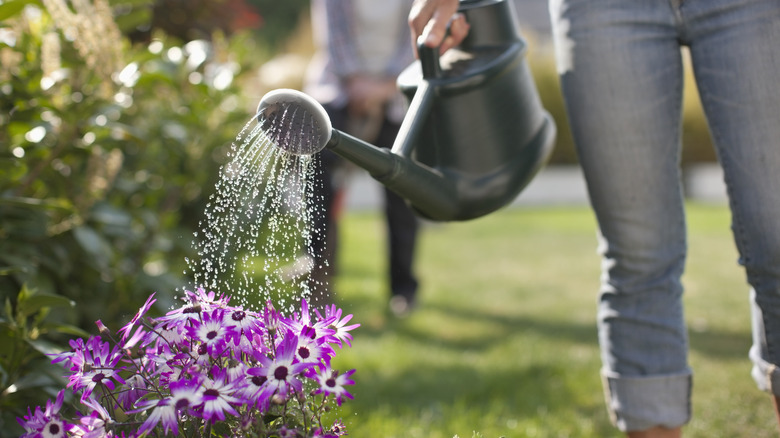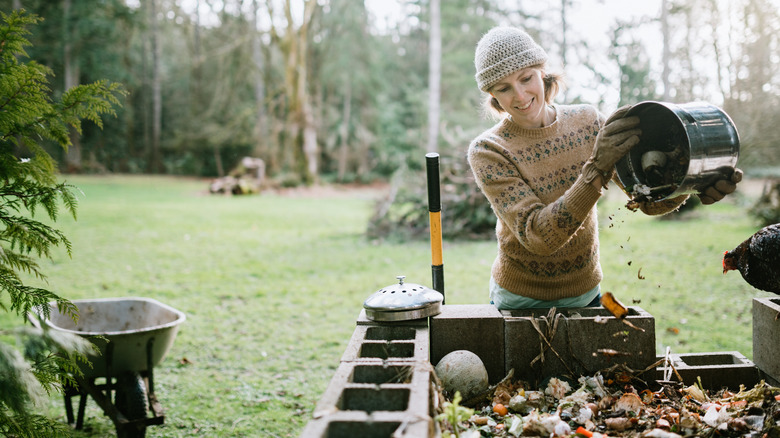Can Alka-Seltzer Really Help Your Plants Grow?
If you've got a well-developed green thumb, then you probably already know that maintaining an optimal soil pH is essential for fostering ideal plant growth. In essence, soil pH serves as the environmental equilibrium for plants. The pH level influences the availability and absorption of essential nutrients vital for your plants' development. Most often, plants prefer a pH that avoids extremes of acidity or alkalinity. Deviations from this optimal range can impact the plant's ability to access essential nutrients in the soil, water, or growing medium. Therefore, attention to soil pH management is imperative for fostering robust and thriving plant growth in your garden or assorted potted plants. Fortunately, you can influence the pH of the growing medium for your plants by applying different acidic or alkaline products to balance the existing pH of the soil. In a pinch, it may be tempting to use acid-fighting products, like Alka-Seltzer, at home that you would take after a particularly acidic meal, but these products are really meant for human consumption and not for plants.
Alka-Seltzer, known for its antacid properties, might seem like an unconventional solution for neutralizing acidic soil in gardening, but research indicates that it may actually kill your plants instead. In a study performed at Furman University, Brassica rapa seeds that were watered with Alka-Seltzer-infused water did not result in any growth. While Alka-Seltzer tablets can influence carbonic acid in the soil, which can neutralize soil pH, perhaps their strength is better suited for human consumption.
Why Alka-Seltzer isn't great for your plants
While Alka-Seltzer tablets contain ingredients like aspirin and citric acid, which might seem beneficial for plants in overly alkaline soil due to their potentially acidic nature, they are not ideal for plant growth and, in some cases, are fatal for plants (via Orlando Sentinel). Primarily, Alka-Seltzer tablets are designed for human consumption and contain additional compounds like sodium bicarbonate, which can alter the pH of the soil. While some plants might benefit from slight adjustments in soil pH, abrupt changes can shock the delicate balance of nutrients and microorganisms essential for plant health.
Moreover, the effervescence produced by Alka-Seltzer tablets releases carbon dioxide gas into the soil. While carbon dioxide is vital for photosynthesis, excessive amounts can suffocate plant roots by displacing oxygen. This can hinder root respiration and nutrient uptake, ultimately stunting growth. Additionally, the aspirin in Alka-Seltzer tablets contains acetylsalicylic acid, which might have anti-inflammatory properties in humans but can be harmful to plants in high concentrations. Acetylsalicylic acid can unintentionally disrupt plant growth, potentially preventing seeds from germinating at all.
Finally, the rapid release of chemicals from Alka-Seltzer tablets can result in nutrient imbalances within the soil. The sudden influx of salts from the tablet components can also damage delicate root structures, further compromising the plant's ability to absorb water and nutrients. On that note, before amending your plants' soil with any additive, it's best to test the soil first to determine what, if anything, your plants need.
Other home-made alternatives
So, while you should save your Alka-Seltzer tablets for your own sour stomach, there are other DIY methods that are affordable and safe for plants that you can try at home. If your soil is too acidic and you need to raise the pH, one at-home method you can try is adding wood ashes from your fireplace. When wood is burned, the ash residue contains compounds like calcium carbonate and potassium carbonate, which act as natural pH elevators. To try this method, sprinkle a thin, even layer over the soil surface and gently incorporate it into the top layer using a rake or hand tool. This application should be followed by thorough watering to facilitate the integration of the ashes into the soil.
On the other hand, if you need to lower a more alkaline soil, a great practice to integrate into your gardening is using homemade compost. Rich in organic matter, compost releases organic acids during decomposition, influencing soil acidity. Applying homemade compost is beneficial when dealing with overly alkaline soils. Incorporate it into the soil during the planting season or as a pre-planting amendment. A yearly application is generally sufficient, but frequency may vary based on soil conditions. The organic acids in compost work by binding with alkaline minerals, releasing hydrogen ions, and reducing soil pH. This gentle and sustainable approach enhances nutrient availability and microbial activity, promoting a balanced pH environment for your plants. Monitor your soil pH regularly for optimal plant growth.


